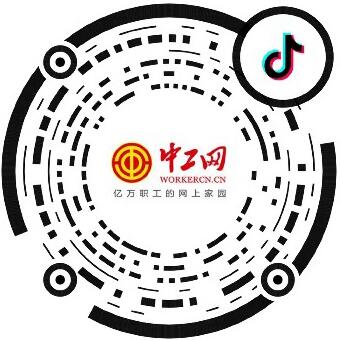The original title: "A 20% discount is a loss!" Why did several publishers say "No" together
Beijing, China News Network, May 23( Reporter Shangguan Yun )It is not June yet, and the topic of "618 Promotion" has appeared, but it seems to have a little "gunpowder flavor".
A few days ago, two "Joint Statement Notification Letters" from the publishing industry circulated on the Internet, triggering a wide range of discussions, and finally became a focus topic, "several publishers boycotted 618 book promotion".

Photo source: Weibo screenshot
The reporter's insiders confirmed the fact. So, what is the reason behind this move? What impact will it bring?
Why do multiple publishers say "no" together
Two "Joint Statement Notification Letters" circulated on the Internet show that some publishing houses in Beijing, as well as the Shanghai Publishing House Management Association representing 46 publishing units in Shanghai, have declared that they will not participate in the 618 promotion program proposed by Jiangsu Yuanzhou E-Commerce Co., Ltd. and will not bear any rebate costs incurred during the activity.
According to media reports, Jiangsu Yuanzhou E-Commerce Co., Ltd. mentioned in the above notification letter is regarded as a related company of JD Books. In addition, JD's book purchasing and marketing employees have publicly responded to this matter in the circle of friends, saying that they just want to better benefit consumers, expand sales through small profits and quick turnover, and create revenue for partners.
According to the two joint statement letters, the key point of this conflict may be the promotion conditions proposed by the e-commerce platform, namely "30% discount for all kinds of books" and "20% to 30% discount for all kinds of books".

Photo source: Screenshot of the circulated joint statement notification letter
A staff member of a publishing house calculated an account for the reporter: the publishing house's book pricing is based on cost accounting, including paper, printing, binding, typesetting, editing, proofreading, author royalties, etc., which is generally reasonable.
"Every situation is different in every book, but the big experience is within the range of cost rate. Some low discounts are close to or lower than the cost rate, and the result must be loss making," she explained.
San Shi, the publisher, believes that e-commerce platforms also have discount promotions in the past years, but this time the requirement is "all kinds of books", and the discount is as low as 20% or 30%, and the publishing house almost has no money to earn, so it is normal to say "no".
In addition, he also revealed that the core of the problem was that the e-commerce platform sold books at such a low price, and even discounted money before, not for profit, but mainly to attract consumers to sell other products.
”The e-commerce platform uses some key time nodes to carry out activities and promotions. As long as it is legal and compliant, it is no problem in itself. However, it shall communicate with the publishing agency in advance. And the discount is already lower than the cost of books. Who will lose money? " Zhang Hongbo, executive vice president and general director of the Chinese Character Copyright Association, said.
Who is hurt by ultra-low discount promotion?
The press is under great pressure, and some readers are also very depressed. They think that the price of some books is a little high now.

Image source: Screenshot of netizen comments
For example, some netizens said that a book is often more than 50 yuan, saving excessive packaging; Some netizens said that they understand that knowledge is priceless, but books are really expensive, and they dare not go to bookstores more often. Occasionally, they will buy some on the Internet at a discount and store them for reading.
"The discount of physical bookstores is not high due to cost and other issues. Some large e-commerce stores have daily book discounts of about 50% to 70%, which is a benefit for readers." San Shi understands the readers' idea very well, "book lovers hope that the books they like can be cheaper."
However, when books fight a "price war", will book buyers definitely benefit? In the view of industry insiders, this is not necessarily the case.
For example, if "super low price" has become a gimmick for selling books and attracting eyeballs, readers' perception and judgment of book price are easily affected. Unconsciously, excessive bundling of "low price" with book purchase options will tend to buy books at a lower price.
Therefore, publishers have to lower costs and adopt price competition to attract consumers. However, in terms of paper, printing and other links, the space that can be compressed is limited, and finally the pressure will probably also be put on the content.
In the long run, if a vicious circle is formed, it is not good for the production and publication of fine books.
"Over the years, the cost of books has been rising, and the discount is so large that the promotion activities as low as 30% or 20% are harmful to the book market, damaging the interests of publishers and authors. It is the readers who pay the bill," concluded Sanshi.
How to maintain industry order?
The impact of e-commerce platforms on the book market is actually a long-standing topic.
The Annual Report on the Book Retail Market in 2023 also shows that the scale of China's book retail market will be 91.2 billion yuan in 2023, up 4.72% year on year. Short video channel is the second largest book sales channel after platform e-commerce.

Photo source: Beijing Open Book
Consumers are almost naturally "price sensitive", which is understandable. Over the years, in addition to promotional activities, many publishing houses and even physical bookstores have started the mode of live streaming with goods, striving to occupy a place in the market.
However, there are also problems. One of them is that when the sales channels shift significantly online and the online and offline "price war" starts, physical bookstores may be impacted.
"Their higher operating costs make it difficult to afford low price promotions, and online direct sales of publishers will also bring pressure on physical bookstores. If e-commerce has no bottom line to sell books in a large range at low discounts, it will directly hurt physical bookstores," said Sanshi.
In view of the problems exposed by the "multiple publishers boycotting the 618 book promotion", he suggested that the relevant departments could introduce some policies, such as no discount sales for the new books for a period of time after they were published, to guide the healthy development of the book market.
"E-Commerce platform promotion should be based on legality and compliance, rather than trying to catch fish with all one's might." Zhang Hongbo said that both e-commerce platforms and publishing institutions should comply with relevant laws and regulations and industry practices.
In addition, he proposed that industry associations could organize member units and industry experts to negotiate with e-commerce platforms, put forward their own reasonable proposals according to law, seek appropriate promotion discounts, and safeguard industry interests and market order according to law.






















